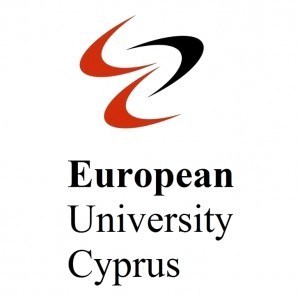Photos of university / #universityofcyprus
The Bachelor of Science in Computer Engineering at the University of Cyprus provides students with a comprehensive education in the design, development, and application of computer systems and software. This program is meticulously structured to equip students with a solid foundation in computer science principles, hardware and software integration, algorithms, programming languages, and system architecture. Throughout the course of study, students engage in theoretical coursework and practical projects that foster critical thinking, problem-solving skills, and innovation in computing technologies. The curriculum emphasizes the development of proficiency in programming languages such as C, C++, and Python, alongside courses in digital logic design, microprocessors, embedded systems, and networking. Students also have opportunities to specialize in areas like cybersecurity, data networks, or software engineering, allowing for tailored academic pathways aligned with their career interests. The program promotes an interdisciplinary approach, integrating knowledge from electrical engineering and information technology to prepare graduates for the dynamic demands of the industry. Collaborative projects, internships, and research opportunities are key components of the educational experience, enabling students to gain real-world skills and professional connections. Graduates of this program are well-equipped for careers in software development, embedded systems, telecommunications, cybersecurity, and research roles in academia and industry. The University of Cyprus’s state-of-the-art facilities, experienced faculty, and industry partnerships ensure that students receive a contemporary and relevant education that meets international standards. Upon graduation, students will possess the technical expertise, analytical abilities, and innovative mindset necessary to contribute effectively to the rapidly evolving field of computer engineering and to pursue advanced studies or professional development in related areas.
The Bachelor of Science in Computer Engineering at the University of Cyprus is a comprehensive undergraduate program designed to prepare students for a dynamic and rapidly evolving industry. This program combines theoretical foundations with practical applications, ensuring graduates are well-equipped to meet the technological challenges of the modern world. Throughout their studies, students explore core areas such as computer hardware, software development, embedded systems, networks, and cybersecurity, gaining a broad and integrated understanding of computer engineering principles. The curriculum emphasizes both fundamental sciences like mathematics, physics, and algorithms, as well as specialized courses in digital logic design, computer architecture, operating systems, and programming languages.
In addition to technical coursework, the program fosters critical thinking, problem-solving skills, and innovative design capabilities through various project-based assignments and laboratory exercises. Students have the opportunity to engage in hands-on experiences utilizing state-of-the-art laboratories and equipment, which enhances their practical skills and prepares them for real-world engineering tasks. The program also encourages active participation in research and development activities, often collaborating with industry partners to address current technological challenges.
The interdisciplinary nature of computer engineering allows students to specialize in areas such as software engineering, hardware design, data analytics, or telecommunications. The curriculum is regularly updated to include emerging technologies like artificial intelligence, cloud computing, and the Internet of Things, ensuring that students are at the forefront of technological advances. Throughout the course of their studies, students develop essential skills in teamwork, communication, and project management, which are vital for successful careers in engineering and technology sectors.
The program is overseen by experienced faculty members dedicated to academic excellence and innovative teaching methods. Students are also encouraged to participate in internships and exchanges, providing valuable industry exposure and global perspectives. Upon graduation, students are prepared for careers in various fields including software development, hardware engineering, systems analysis, network administration, and research. Many graduates also pursue advanced studies or collaborative projects that contribute to technological innovation and societal progress. The Bachelor of Science in Computer Engineering at the University of Cyprus offers a robust foundation for students aiming to become influential professionals and innovators in the field of computer technology.
Program requirements for the Bachelor’s Degree in Computer Engineering at the University of Cyprus include a combination of mandatory coursework, minimum credit hours, laboratory work, and project components. Prospective students are generally expected to have completed secondary education with a strong background in Mathematics and Physics, demonstrating aptitude for analytical and computational problem-solving. The undergraduate curriculum mandates the completion of approximately 240 ECTS credits over four academic years, encompassing core courses in digital systems, programming, algorithms, computer architecture, and software engineering. Students must also undertake elective courses to tailor their specialization within the field, such as embedded systems, telecommunications, or data science. Laboratory courses form a significant part of the program, requiring hands-on experience in hardware and software applications, including programming assignments, circuit design, and embedded system implementation.
Foreign students and students from non-Greek-speaking backgrounds need to demonstrate proficiency in English, typically through standardized tests such as TOEFL or IELTS, unless they have completed previous studies in English-medium institutions. To ensure comprehensive understanding, students are often required to participate in project work, often culminating in a final-year capstone project, which involves designing, developing, and presenting a significant system or application in collaboration with industry partners or research groups. The program also emphasizes the development of soft skills such as teamwork, communication, and project management, integrated through coursework and project collaborations.
Admission may be contingent upon the fulfillment of certain prerequisites, including adequate grades in relevant scientific subjects, and the successful completion of entrance examinations or interviews, depending on the applicant's educational background. Continuous assessment through quizzes, assignments, mid-term exams, and final examinations contributes to the final grading. Additional requirements include participation in seminars, workshops, and possibly internships, all designed to enhance practical experience and integration into the professional community. Overall, the program seeks to produce graduates with a solid foundation in both theoretical principles and practical skills, prepared to meet the technological challenges in industry and academia.
The Computer Engineering program at the University of Cyprus offers a variety of financing options to support students throughout their studies. Tuition fees are determined annually and are set by the university’s administrative board, with differing rates for domestic and international students. For undergraduate programs like Computer Engineering, tuition fees are typically paid on a per-semester basis, and students are encouraged to review the official university website for the most current fee structure.
The university provides several financial aid schemes to assist students in funding their education. These include scholarships based on academic performance, need-based grants, and merit awards allocated through competitive examinations or academic achievements. Scholarships are available to both undergraduate and postgraduate students and often cover partial or full tuition fees. Applicants are usually required to maintain a certain academic standing to retain their scholarship status.
In addition to university-specific financial aid, students may access external funding sources. These include government grants, research assistantships, and international sponsorships. The Cyprus government occasionally offers scholarships for students pursuing degrees in STEM fields, including Computer Engineering, aimed at encouraging local and EU students to engage in high-demand technical disciplines.
Furthermore, the university facilitates student employment opportunities on and off-campus. Part-time jobs are available for students, enabling them to earn income while studying. The university’s career services department assists in connecting students with employment opportunities relevant to their field of study.
Students are also encouraged to explore student loan schemes available through banks and financial institutions. These loans often have favorable repayment plans and low-interest rates designed to make higher education more accessible. The university provides guidance and counseling on managing financial planning and applying for these loans.
Finally, many students consider study abroad programs and international exchanges that sometimes include financial support options, such as grants or reduced tuition fees. The university’s international partnerships offer students the opportunity to study abroad without significant financial burden, sometimes accompanied by scholarships specific to exchange programs.
Overall, the University of Cyprus emphasizes providing comprehensive financial support mechanisms to ensure that students in the Computer Engineering program can focus on their academic pursuits without undue financial stress. The specific details about the current fees, scholarships, and other financial aid options are available on the university’s official website and admissions office.
The Bachelor of Science in Computer Engineering at the University of Cyprus is a comprehensive undergraduate programme designed to prepare students for a wide range of careers in the rapidly evolving field of computer technology. The curriculum balances fundamental principles of computer hardware and software with practical skills and contemporary topics such as embedded systems, networking, cybersecurity, and software development. Students gain a solid foundation in mathematics, physics, and computer science, enabling them to understand and develop complex computing systems.
The programme typically spans three to four years, depending on whether students undertake coursework full-time or part-time. Throughout their studies, students engage in a combination of lectures, laboratory work, projects, and internships, facilitating experiential learning and industry engagement. The curriculum emphasizes problem-solving, critical thinking, and innovation, encouraging students to work on real-world projects that enhance their technical skills and teamwork abilities.
In addition to core courses, students have the opportunity to specialize or take elective courses in areas such as artificial intelligence, data science, digital systems design, and software engineering. The programme also promotes interdisciplinary collaboration and research, often involving faculty in cutting-edge projects that address national and international technological challenges.
Graduates of the Computer Engineering programme at the University of Cyprus are well-equipped to pursue careers in various sectors including information technology, telecommunications, automation, and software development. Many alumni go on to work in industry, government, or academia, or choose to continue their education through master’s or doctoral programmes. The university offers strong support services, career counseling, and links with local and international companies to facilitate employment opportunities. Overall, the programme aims to produce technically proficient, innovative, and socially responsible engineers who can contribute to the advancement of technology and society.




